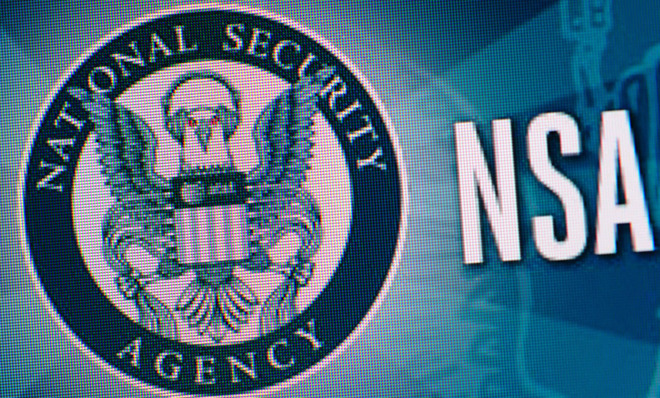The Senate defeated an overhaul of the NSA. Here's what's next for surveillance reform.
With the GOP set to take control of the Senate, defenders of civil liberties may have to find other ways to rein in the surveillance state


A free daily email with the biggest news stories of the day – and the best features from TheWeek.com
You are now subscribed
Your newsletter sign-up was successful
On Tuesday evening, the USA Freedom Act died in the Senate, failing a cloture vote, 58-42. The bill's demise ended the legislative effort to put some limits on the National Security Agency phone dragnet first exposed by Edward Snowden in June 2013. But there are still modest steps Congress can take to chip away at the surveillance state, and other avenues that civil liberties groups can pursue.
The USA Freedom Act would have prevented the government from acquiring some subset of all Americans' phone records, and it was the only bill under consideration that tackled that aspect of NSA's enormous surveillance program. But there are two more efforts to limit the NSA legislatively via appropriations. The Massie-Lofgren amendment to the Defense Department appropriations bill would defund NSA's ability to search the content of the American side of conversations picked up under PRISM, the program that mines a massive amount of our electronic data.
An amendment by Rep. Alan Grayson (D-Fla.) would end the requirement that the government's standards-setting body consult with the NSA when setting encryption standards. Grayson's amendment is designed to prevent the NSA from deliberately weakening encryption.
The Week
Escape your echo chamber. Get the facts behind the news, plus analysis from multiple perspectives.

Sign up for The Week's Free Newsletters
From our morning news briefing to a weekly Good News Newsletter, get the best of The Week delivered directly to your inbox.
From our morning news briefing to a weekly Good News Newsletter, get the best of The Week delivered directly to your inbox.
The Massie-Lofgren amendment, at least, is likely to draw opposition from Sen. Barbara Mikulski (D-Md.), the chair for the Senate Appropriations Committee.
That leaves the courts as the most likely means of limiting the phone dragnet. Both the American Civil Liberties Union and FreedomWatch's Larry Klayman argued their suits against the phone dragnet in appellate courts in recent months. And an Idaho nurse named Anna Smith will argue her case before the U.S. Court of Appeals for the Ninth Circuit next month.
The Second Circuit, which heard the ACLU's argument, seems particularly skeptical of the program. During the hearing in that case, Judge Gerard Lynch described the implications of the government's justification for keeping all Americans' phone records thusly: "You can collect everything there is to know about everybody and have it all in one big government cloud."
Other court challenges may have implications for the phone dragnet as well. In a remarkable amicus brief filed with the Eleventh Circuit on Tuesday, AT&T suggested that the Third Party doctrine — the legal theory that the government uses to justify its claim that it can collect Americans' phone records without a warrant — may be outdated. The Third Party doctrine holds that people submitting information to a third party (e.g. a telephone company) have "no reasonable expectation of privacy," but AT&T said this may be anachronistic given how reliant people have grown on new communication technologies.
A free daily email with the biggest news stories of the day – and the best features from TheWeek.com
"The privacy and related social interests implicated by the use of modern mobile devices," former Acting Attorney General Peter Keisler argued for the phone company, "are fundamentally different and more significant than those evaluated" in the original Third Party doctrine cases.
If any of these circuits rule against the government, it will surely appeal (if it is a broad ruling) or rush to push through legislation ending the phone dragnet in current form to moot the legal challenges. But even if these cases do not prompt Congress to act more quickly, it is bound to consider the phone dragnet again in the next six months, as the section of the Patriot Act authorizing it — Section 215 — is due to sunset in June. While the rising Republican leadership in the Senate — Chuck Grassley (Iowa), who will chair the Senate Judiciary Committee, and Richard Burr (N.C.), who will chair Senate Intelligence Committee — shows no interest in reform, the House may have enough votes to force some improvements.
There's one more source of pressure for reform, in addition to the courts and Congress: the corporations being asked to partner with the nation's spy agencies. Under USA Freedom Act, the providers (and a secondary set of contractors) would have received expansive immunity, not even requiring the providers to exercise good faith in their assistance to the government. Providers don't have that now, nor does the existing law authorize payment for their cooperation.
Moreover, both telecommunication companies and internet providers are seeking to reassure their customers they can protect their privacy. One way or another, the providers have a business interest in pushing for more reform, whether it is via Congress or via the courts, as AT&T did yesterday.
The Republicans who helped defeat USA Freedom Act ranted about the Islamic State, arguing that the government had to retain a massive surveillance program that had never once identified a terrorist because tomorrow that program might, for the first time, identify someone plotting to attack the country. (The dragnet has only ever identified a man sending money to the Islamic extremist group al-Shabaab to combat an Ethiopian invasion of Somalia.)
Yet the NSA's overbearing surveillance itself poses a risk to the country. In addition to eroding trust between the government and its citizens, it is harming the reputation of some of the country's most vibrant businesses. An interest in civil liberties might not convince Republicans to give up on a program that has never been effective. But the economic consequences of the dragnet to Big Business might.
Marcy Wheeler is an independent journalist who covers national security and civil liberties. She writes as emptywheel at her eponymous blog, publishes at outlets including The Guardian, Salon, and The Progressive, and is the author of Anatomy of Deceit, a primer on the Scooter Libby CIA leak investigation.
-
 Why is the Trump administration talking about ‘Western civilization’?
Why is the Trump administration talking about ‘Western civilization’?Talking Points Rubio says Europe, US bonded by religion and ancestry
-
 Quentin Deranque: a student’s death energizes the French far right
Quentin Deranque: a student’s death energizes the French far rightIN THE SPOTLIGHT Reactions to the violent killing of an ultra-conservative activist offer a glimpse at the culture wars roiling France ahead of next year’s elections.
-
 Secured vs. unsecured loans: how do they differ and which is better?
Secured vs. unsecured loans: how do they differ and which is better?the explainer They are distinguished by the level of risk and the inclusion of collateral
